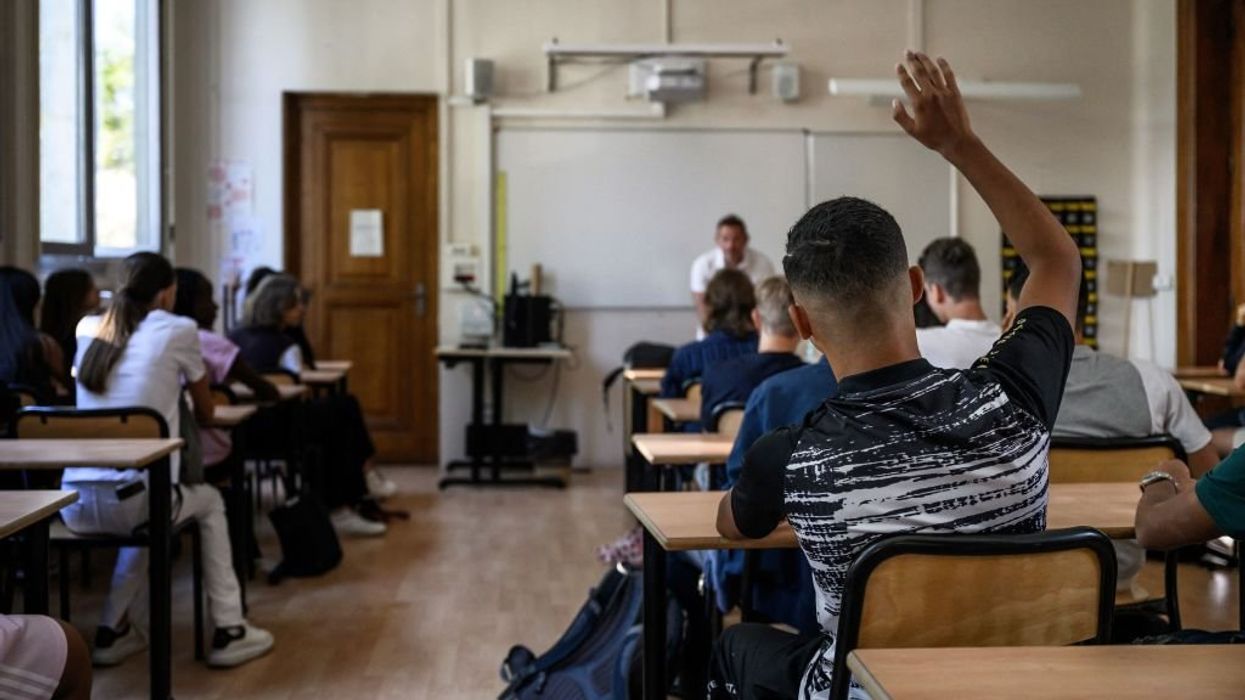
Photo by JEFF PACHOUD/AFP via Getty Images

A recent state exam revealed that 40% of Baltimore high schools do not have a single student who is proficient in math, despite the district receiving $1.6 billion in taxpayer funds to improve the city's education system, according to test results obtained by WBFF.
The outlet received unredacted state test results for every school in the Baltimore City Public Schools district.
WBFF examined the results of the 32 Baltimore City high schools that took the state math exam last spring and found that 13 had zero students who tested at grade level for math. The outlet did not include Eager Street Academy, which is located in the Baltimore City Detention Center, in its analysis.
Nearly 75% of the 1,736 students who took the test at those 13 schools scored a one out of four, indicating that they are not even close to testing at grade level.
The Baltimore City Public Schools system received $1.6 billion in taxpayer funds last year to improve education after several schools scored poorly on tests. In addition, the district received another $799 million in federal COVID relief funds.
A 2017 report by WBFF also found that 13 schools had zero students testing at grade level for math. The outlet noted that many schools that missed the mark in 2017 were also on the spring 2023 list.
The spring test results have not yet been released to the public. When they are, WBFF noted that the results will be heavily redacted, making it difficult for parents and city residents to assess the schools' performance.
Earlier this year, the Maryland State Department of Education released 2022 test results for all Baltimore City Public Schools, revealing that 93% of third- through eighth-grade students were not proficient in math. According to WBFF, not one student tested at grade level at 23 city schools, including 10 high schools, eight elementary schools, three middle and high schools, and two elementary and middle schools. Another 20 public schools had only one or two students proficient in math.
At the time, Democratic Governor Wes Moore vowed to improve the state's schools and touted "the largest investment in public education by any governor in our state's history."
With those funds, Baltimore City Public Schools claimed it would expand professional development for teachers, launch summer learning programs, and provide extended learning periods at the end of the school day.
Despite the massive financial investments from taxpayers, the school system has failed to make noticeable improvements.
State Superintendent Mohammed Choudhury announced earlier this month that he would not seek another term. The Washington Post reported in July that Choudhury was accused of creating a "toxic" environment and displayed a "pattern of verbal bashing and diminishing others in the presence of staff members."
Choudhury largely denied the accusations. In a letter to the governor and legislative leaders, he wrote, "If there has ever been a moment where my passion in any way offended, confused, frustrated, or caused you pause — I am sorry, that was not and is not my intent."
In a statement to WBFF, the district said:
Baltimore City Public Schools (City Schools) appreciates recent one-time and ongoing increases in funding from our community. City Schools uses the funding to increase student achievement. Our complete 2023 Maryland Comprehensive Assessment Program (MCAP) math data paints a genuine picture of our progress.
But make no mistake: these recent increases do not diminish or patch over years of chronic underfunding that has directly contributed to our current outcomes. That recovery takes an equal or more significant amount of time to remediate.
Right now, the facts are clear: City Schools' students have earned two consecutive years of improved scores on the math MCAP following national decreases during the COVID pandemic. Seven of eight grade levels experienced growth in math between SY2021-22 and SY2022-23, mirroring growth in Maryland overall.
We acknowledge that some of our high school students continue to experience challenges in math following the pandemic, especially if they were struggling beforehand. Our students, staff, families, and community may visit https://www.baltimorecityschools.org/2023-MCAP-res... to learn more about our steps to improve student outcomes.
The work is underway to improve outcomes for students. But treating student achievement as an 'if-then' proposition does a great disservice to our community.
Like Blaze News? Bypass the censors, sign up for our newsletters, and get stories like this direct to your inbox. Sign up here!